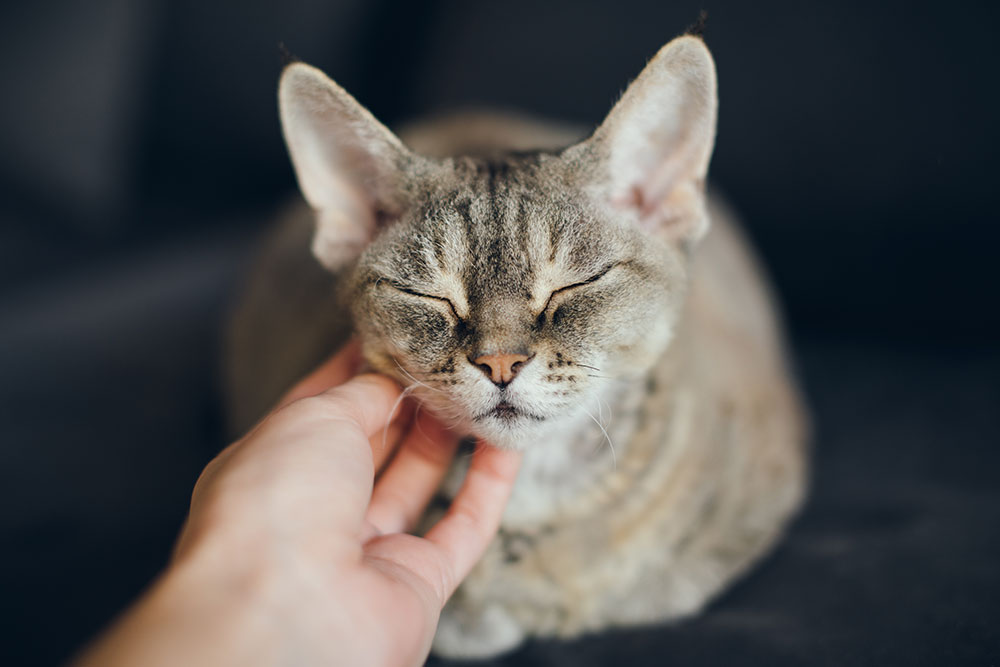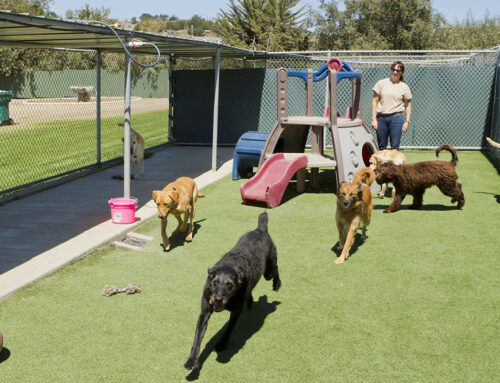Supporting Stressed Pets With Compassion and Care
When pets show anxiety, it’s a sign they need reassurance, not punishment. Understanding their triggers and providing structure through training or calming aids builds trust. With patience, anxious pets can rediscover peace and confidence.
At Memorial Villages Animal Hospital, our comprehensive approach to veterinary care includes helping pets overcome anxiety through behavioral support, medical evaluation, and individualized treatment plans. From routine wellness exams to specialized diagnostics, we’re here to help anxious pets and their families find lasting solutions.
Why Pet Anxiety Deserves Medical Attention
Anxiety in pets is more than a behavioral quirk. It’s a legitimate medical and behavioral condition that affects quality of life, immune function, and the bond between pets and their families. Unlike humans, dogs and cats communicate distress through body language and behavior rather than words, making recognition and early intervention critical.
Chronic stress weakens the immune system, disrupts sleep patterns, and can lead to destructive behaviors or self-harm. Some pets stop eating, while others develop compulsive habits like overgrooming or pacing. Without proper care, anxiety worsens over time, creating a cycle of fear that becomes harder to break.
Understanding the root cause of anxiety requires ruling out medical conditions first. Physical discomfort or pain from arthritis, dental disease, or internal illness often manifests as anxious behavior. Aging pets may also develop cognitive dysfunction, which causes confusion, disorientation, and increased anxiety, especially at night.
At Memorial Villages Animal Hospital, our uncommonly thorough exams and on-site laboratory allow us to identify underlying health issues quickly, ensuring that behavioral concerns receive the right medical foundation for successful treatment.
Recognizing the Signs Your Pet Is Struggling
Anxiety looks different in every pet, but certain patterns emerge across species. Learning to recognize these signs helps you intervene early and prevent escalation.
What Anxiety Looks Like in Dogs
Dogs express stress through a wide range of physical and behavioral signals. Trembling, panting, and pacing are common during storms or fireworks. Some dogs spin in circles, bark excessively, or chew destructively when left alone. Loss of bladder control during stressful events is another telltale sign of anxiety rather than poor training.
Understanding canine body language helps you catch stress before it escalates. Lip licking, yawning when not tired, turning the head away, crouching low, and tucking the tail all signal discomfort. These subtle cues often appear before more dramatic behaviors like barking or destruction.
How Cats Show Fear and Stress
Cats are masters at hiding discomfort, but anxiety eventually surfaces through behavior changes. Hiding for extended periods, overgrooming to the point of hair loss, and sudden aggression toward people or other pets are red flags. Changes in litter box habits often accompany stress, with some cats urinating outside the box or avoiding it entirely.
Many cat behavior issues stem from anxiety rather than defiance. Recognizing feline body language cues like flattened ears, dilated pupils, crouching posture, and tense muscles helps you identify stress early. The feline grimace scale is particularly useful for detecting pain-related facial tension, which often accompanies anxiety in cats with underlying medical conditions.
Common Triggers That Cause Pet Anxiety
Identifying what causes stress is the first step toward reducing it. While some triggers are obvious, others require careful observation and tracking.
Noise-Related Fear and Phobias
Noise aversion affects countless pets, with storms, fireworks, and construction sounds topping the list. Thunderstorms are particularly challenging because they combine multiple stressors: barometric pressure changes, vibrations from thunder, flashes of lightning, and wind. Pets may sense storms hours before humans notice them, leading to anticipatory anxiety.
Early desensitization training and creating safe spaces can reduce fear over time. Some pets benefit from white noise machines, calming music, or covered crates that provide a den-like environment during stressful events.
Social and Environmental Changes
Major life transitions disrupt pets’ sense of security. New family members, whether human or animal, change household dynamics. Empty nest syndrome affects pets when children leave for college, and altered work schedules can trigger separation anxiety in dogs who suddenly face long periods alone.
Cats and stress are closely linked, with many cats hiding or refusing food when routines change. Separation anxiety in dogs manifests as destruction, excessive barking, and escape attempts within minutes of the owner’s departure.
Multi-pet households face unique challenges. Inter-cat tension can simmer quietly for months before erupting into aggression. Proper introductions and respecting each cat’s need for personal space prevent many conflicts. Reactive behavior and resource guarding in dogs often stem from fear rather than dominance, requiring empathy and strategic intervention rather than punishment.
Building Confidence Through Training and Enrichment
Reducing anxiety requires a multi-faceted approach that addresses both behavior and environment. Training builds confidence, while enrichment provides healthy outlets for stress.
Positive Reinforcement as a Foundation
Positive reinforcement training rewards calm behavior and creates positive associations with previously stressful situations. Desensitization and counter-conditioning gradually expose pets to triggers at low intensity while pairing the experience with something pleasant.
The engage-disengage training game teaches dogs to look at a trigger and then look away, earning rewards for calm behavior. Over time, this builds confidence and reduces reactivity. Cooperative care training for dogs and cats reduces handling fear during veterinary visits or grooming, making necessary care less stressful for everyone involved.
Punishment increases anxiety and damages trust, making problems worse rather than better. Patience and consistency yield lasting results.
Enrichment That Channels Natural Instincts
Mental stimulation builds confidence and prevents boredom-based anxiety. Cats benefit from enrichment toys, vertical spaces for climbing, and hiding spots that satisfy their natural hunting instincts. Creating an indoor cat environment that mimics outdoor complexity reduces stress and promotes well-being.
Dogs thrive on variety and sensory engagement. Enrichment ideas include puzzle toys, scent work, and interactive play that challenges their problem-solving abilities. Sniffari walks let dogs explore at their own pace, using their powerful sense of smell to gather information about their environment. This natural stress outlet often proves more calming than physical exercise alone.
Medical Support When Behavior Modification Isn’t Enough
Some pets require medical intervention to manage anxiety effectively. Veterinary-prescribed medications can reduce fear responses enough to allow behavior modification to succeed. Pheromones like Adaptil for dogs and Feliway for cats create a sense of safety by mimicking natural calming scents.
At Memorial Villages Animal Hospital, our veterinarians evaluate each pet’s unique situation, combining diagnostic imaging and laboratory work to rule out medical causes before developing a comprehensive treatment plan. Our services include pain management, cold laser therapy, regenerative medicine, acupuncture, and chiropractic care, all of which can reduce physical discomfort that contributes to anxious behavior.
Making Veterinary Care Less Stressful
Veterinary visits often trigger anxiety, creating a cycle where stressed pets become harder to examine and treat. Breaking this cycle requires preparation and partnership.
Reducing vet-visit stress starts at home. Bring familiar items like treats, toys, or bedding to create comfort. Practice gentle handling and carrier training well before appointments. Scheduling quieter appointment times or “happy visits” where pets receive treats without procedures helps build positive associations.
Pre-visit medications or pheromone sprays can calm anxious pets before travel. At Memorial Villages Animal Hospital, our team works with you to create individualized plans that minimize stress while ensuring thorough care.
Diagnostic Evaluation for Anxiety
Comprehensive evaluation includes a physical exam, behavioral history review, and often blood work to check for hormonal imbalances, organ dysfunction, or metabolic issues. Diagnostics help differentiate anxiety-related behaviors from pain, illness, or neurological problems.
Our on-site laboratory and board-certified radiologist ensure accurate, timely results. When emergency or urgent care becomes necessary, our team provides immediate stabilization and treatment during business hours.

Separating Fact From Fiction About Pet Anxiety
Misconceptions about anxiety lead to delayed treatment and unnecessary suffering. Understanding the truth helps pets get the help they need.
“They’ll grow out of it.” Anxiety rarely resolves without intervention. Early treatment prevents lifelong fear responses and improves long-term outcomes.
“Punishment works.” Punishment increases fear and damages the trust between pets and their families. It makes anxiety worse, not better.
“Medication is a last resort.” For some pets, medication provides the foundation for successful behavior modification and dramatically improves quality of life. It’s a tool, not a failure.
Your Partner in Building Calmer, Happier Lives
Recognizing anxiety is the first step toward helping your pet live with greater peace and confidence. With patience, appropriate training, environmental enrichment, and veterinary support, even severely anxious pets can thrive.
At Memorial Villages Animal Hospital, our highly individualized approach combines medical expertise with compassionate care. Whether your pet needs routine wellness support or specialized diagnostics, we’re here to help.
Contact us or book online to schedule a behavioral consultation or wellness exam and start your pet’s journey toward a calmer, more confident life.









Leave A Comment